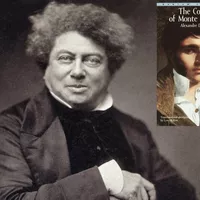Chapter 7. The Examination (1)
No sooner had Villefort left the salon, than he assumed the grave air of a man who holds the balance of life and death in his hands. Now, in spite of the mobility of his countenance, the command of which, like a finished actor, he had carefully studied before the glass, it was by no means easy for him to assume an air of judicial severity. Except the recollection of the line of politics his father had adopted, and which might interfere, unless he acted with the greatest prudence, with his own career, Gerard de Villefort was as happy as a man could be. Already rich, he held a high official situation, though only twenty-seven. He was about to marry a young and charming woman, whom he loved, not passionately, but reasonably, as became a deputy attorney of the king; and besides her personal attractions, which were very great, Mademoiselle de Saint-Meran's family possessed considerable political influence, which they would, of course, exert in his favor. The dowry of his wife amounted to fifty thousand crowns, and he had, besides, the prospect of seeing her fortune increased to half a million at her father's death. These considerations naturally gave Villefort a feeling of such complete felicity that his mind was fairly dazzled in its contemplation.
At the door he met the commissary of police, who was waiting for him. The sight of this officer recalled Villefort from the third heaven to earth; he composed his face, as we have before described, and said, "I have read the letter, sir, and you have acted rightly in arresting this man; now inform me what you have discovered concerning him and the conspiracy." "We know nothing as yet of the conspiracy, monsieur; all the papers found have been sealed up and placed on your desk. The prisoner himself is named Edmond Dantes, mate on board the three-master the Pharaon, trading in cotton with Alexandria and Smyrna, and belonging to Morrel & Son, of Marseilles." "Before he entered the merchant service, had he ever served in the marines?" "Oh, no, monsieur, he is very young." "How old?" "Nineteen or twenty at the most." At this moment, and as Villefort had arrived at the corner of the Rue des Conseils, a man, who seemed to have been waiting for him, approached; it was M. Morrel.
"Ah, M. de Villefort," cried he, "I am delighted to see you. Some of your people have committed the strangest mistake--they have just arrested Edmond Dantes, mate of my vessel." "I know it, monsieur," replied Villefort, "and I am now going to examine him." "Oh," said Morrel, carried away by his friendship, "you do not know him, and I do. He is the most estimable, the most trustworthy creature in the world, and I will venture to say, there is not a better seaman in all the merchant service. Oh, M. de Villefort, I beseech your indulgence for him." Villefort, as we have seen, belonged to the aristocratic party at Marseilles, Morrel to the plebeian; the first was a royalist, the other suspected of Bonapartism. Villefort looked disdainfully at Morrel, and replied,--
"You are aware, monsieur, that a man may be estimable and trustworthy in private life, and the best seaman in the merchant service, and yet be, politically speaking, a great criminal. Is it not true?" The magistrate laid emphasis on these words, as if he wished to apply them to the owner himself, while his eyes seemed to plunge into the heart of one who, interceding for another, had himself need of indulgence. Morrel reddened, for his own conscience was not quite clear on politics; besides, what Dantes had told him of his interview with the grand-marshal, and what the emperor had said to him, embarrassed him. He replied, however,--
"I entreat you, M. de Villefort, be, as you always are, kind and equitable, and give him back to us soon." This give us sounded revolutionary in the deputy's ears. "Ah, ah," murmured he, "is Dantes then a member of some Carbonari society, that his protector thus employs the collective form? He was, if I recollect, arrested in a tavern, in company with a great many others." Then he added, "Monsieur, you may rest assured I shall perform my duty impartially, and that if he be innocent you shall not have appealed to me in vain; should he, however, be guilty, in this present epoch, impunity would furnish a dangerous example, and I must do my duty."

